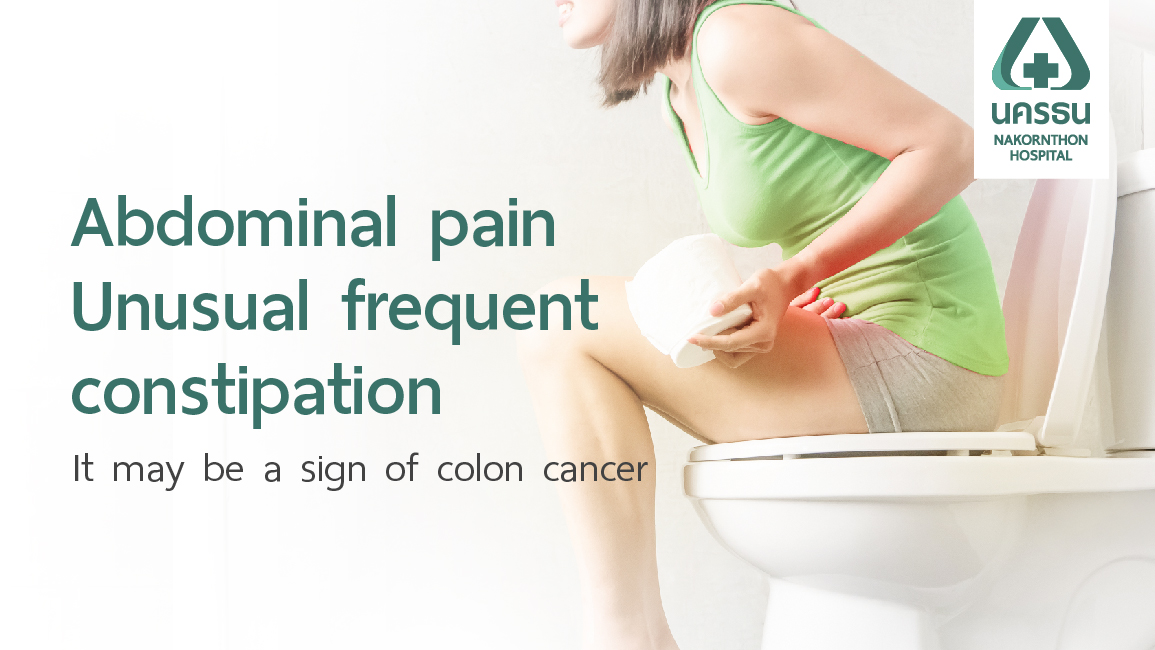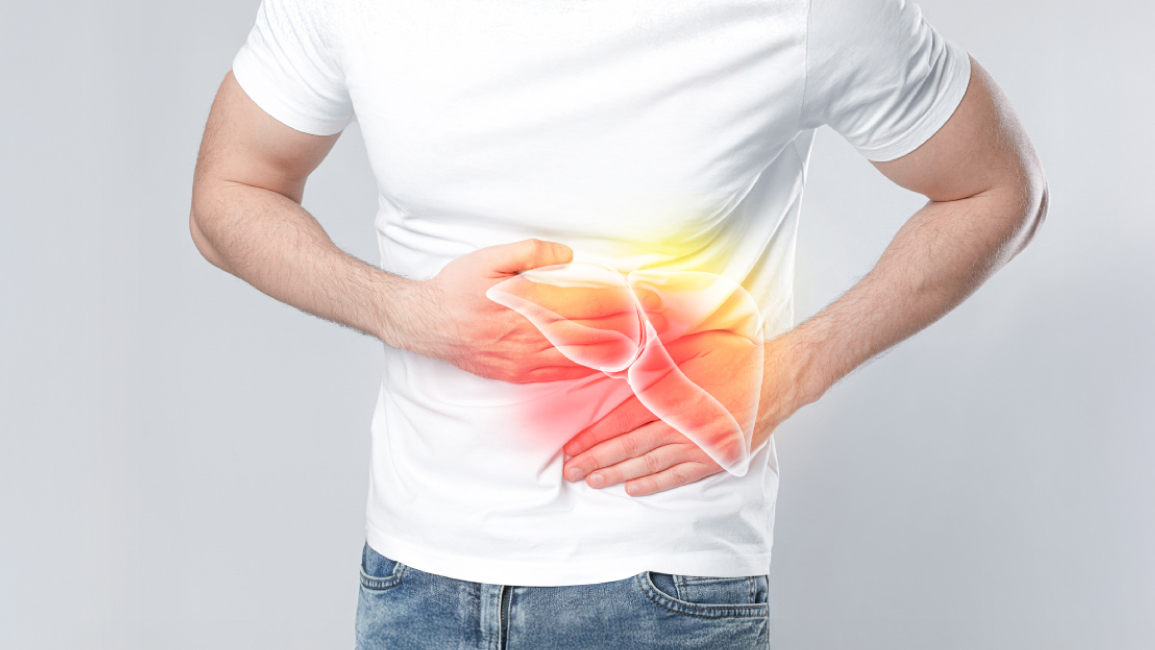Colon Cancer, symptoms and risk
Center : Gastrointestinal and Liver Center

Choose to read by topic:
Colon cancer is considered as a disease tis the leading cause of death with Thai people, but many people view it as a distant disease, but actually this disease is very common, Although we do not know the exact cause, why it happens. But with a different lifestyle plus genetics or inheritance play a part. Moreover, the current eating habits will increase the risk of colon cancer, in order for us to be aware of the dangers and take care of our health for the better. Let's get to know this disease better.
Overview of Colon Cancer
Colon cancer is a disease in which normal cells in the colon mutate. The division increases the number of membranes that cannot be controlled. When the cells are changed, polyps or tumors form in the intestine. These changes in the early stages of cells maybe just normal tumors. That may or may not become cancer, but if left untreated or not removed the tumor may change and become cancerous. And if it becomes cancer, the cancer cells will spread to different muscle layers and parts of the intestine through the lymphatic vessels and blood vessels and appear in other parts of the body.
Risk Group For Colon Cancer
Because the main causes of the cancer is still unknown, some people may have a higher risk of colon cancer than others, including
- People over 50 years old
- People who like to eat red meat and fried, grilled or charred meats
- People who like to eat fast food, foods high in fat and calories or less fiber intake
- People with a family history of colon cancer, especially with direct relatives
- People with a history of intestinal polyps
- People with digestive system problems such as chronic enteritis. Chronic constipation
- People who smoke and consuming alcoholic beverages regularly
- People who are overweight or obese
Symptoms that may indicate colon cancer
- Chronic abdominal pain, flatulence, unusual indigestion, and often localized pain
- Have chronic constipation or constipation and diarrhea
- Bloody stool or black, pale, anemia
- Unusual weight loss exhaustion without cause
- Lump is found in the lower abdomen
- Nausea, loss of appetite
Colon Cancer Stages
Colon Cancer is divided into 4 stages.
- First Stage: The cancer is in intestinal mucosa as a lump or polyp on the surface of the colon wall.
- In the second stage: The cancer has spread to the colon wall. By penetrating into the muscle layer of the intestine and/or through the intestinal membrane, it penetrates into nearby tissues or organs.
- Third Stage: The cancer starts to spread to the lymph nodes nearby.
- Fourth stage: The cancer has invaded distant lymph nodes. Or spread through the bloodstream to distant organs such as the liver, lungs or bones, etc.
Colon cancer diagnosis
There are several methods of diagnosis for colon cancer. The doctor will start by taking a family history. Personal history, general physical examination, and additional specialized tests as appropriate, such as
- Check for blood in the stool - a pathological examination from a stool sample. If there is blood in the stool, it means that there may be bleeding in the digestive system. The doctor will send you to do a detailed examination. But the patient must abstain from meat anti-coagulant including vitamins for at least 3 days
- Colonoscopy for colon cancer using a special camera attached to a thin long tube. Inserted through the anus to pass into the colon, this allows doctors to see various details, throughout the cecum, the doctor can cut the polyps or tissue samples for biopsy
- Radiological examination such as computed tomography (CT scan) is used to assess the stage of the disease and select the appropriate treatment period.
Colon cancer, How are they treated?
Colon Cancer treatment depends on the location of the cancer, the stage of the disease, as well as the current physical health of the patient if he is ready, and the most suitable method. In general, the treatments for colon cancer are as follows.
- Treat with surgery is a method of treatment for any stage of cancer. But in the first stage, your doctor will recommend a surgical procedure to remove the cancerous lump as soon as possible, to prevent cancer cells from spreading.
- Radiation therapy will be used before having surgery to reduce the size of cancer or it is given after surgery to destroy any remaining cancer cells.
- Treat with chemotherapy, this method is used in conjunction with surgery. Patients after having surgery will be given extra chemotherapy to get rid of any remaining cancer cells.
What to do to avoid colon cancer?
Although we cannot determine the cause of this disease, we can prevent this from happening by:
- Avoid eating high-fat foods. Focus on eating foods that contain fibers, such as vegetables and fruits.
- Exercise regularly
- Eat less red meat
- Stop smoking and drink alcohol
- Maintain the digestive system to be normal
- At the age of 45 years, endoscopic screening should be performed every 5-10 years.
Some symptoms that occur with the digestive system may lead to colon cancer, so if you have a disorder plus have risk factors mentioned above, you should see a doctor because it is better to know it before you can cure it.
Conclusion
Colonoscopy screening is very important in the prevention of colon cancer. Doctors recommend this for persons who has a family member that has been diagnosed with colon cancer and should undergo colonoscopy at the age of 45 even though there are no symptom. Since they are more at risks compared to others and should see a specialist regularly depending on the recommendations.
Why must come to Nakornthon
At Nakornthon Hospital, we are committed to distinction in preventing, diagnosing and treating wide ranges of illnesses related to the gastrointestinal tract. With therapeutic technology and modern equipment, our physicians with high level of expertise are here to provide personalized care. Nakornthon Hospital Gastrointestinal and Liver Center, provides a one stop service such as endoscopic examination room, bowel preparation room and recovery room. With personalized care, we give our best to keep our patient safety as our priority. The diagnosis and treatment are performed to minimize the risk factors, complications and reduce the recovery of our patients.
Online Consultation
Article of Gastrointestinal and Liver Center





